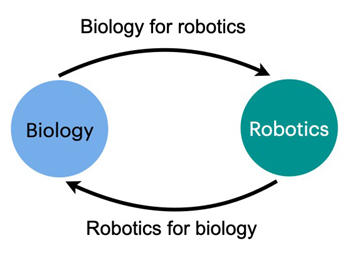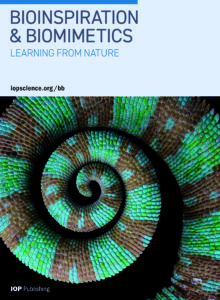Over the course of more than half a billion years, biological systems have evolved remarkable adaptations for navigating complex three-dimensional environments. For centuries, engineers have drawn inspiration from these biological systems to develop functional, flexible, and efficient robots. Consequently, robotics inspired by biology has emerged as a significant branch of the field. Recently, biologists and interdisciplinary teams have begun utilizing robots as practical platforms to test and evaluate hypotheses about biological systems. This approach presents a promising alternative to traditional biological research methods, which often encounter several limitations, including challenges in minimizing confounding factors and isolating specific effects, the influence of the experiment and experimenter on the biological system, and other constraints inherent to living systems. This special issue aims to showcase the latest advancements in bio-inspired robots and broaden their applications in biological research, ranging from individual locomotion to collective behaviors. Current research in bio-inspired robotics is progressing thanks to a deeper understanding of biological principles, and in turn, these robots are providing an ideal platform for biologists to gain a more comprehensive understanding of biological phenomena. As a result of the looping, the robotic system could serve as a RoboTwin of the biological system, coevolving with our knowledge of biological systems.
投稿流程
特刊文章与BB期刊常规文章遵循相同的审稿流程和内容标准,并采用同样的投稿模式。
有关准备文章及投稿的详细信息,可以参阅IOPscience页面的作者指南。
作者可登入期刊主页进行在线投稿,在“文章类型”中选择“特刊文章”,并在“选择特刊”的下拉框中选择“RoboTwin: Reciprocal Insights between Biology and Robotics”。
投稿截止日期:2024年12月1日。



